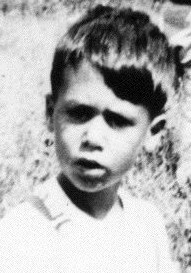The chasm
You grew, grew, grew. But you couldn’t move. You couldn’t. You couldn’t move, but you advanced. You couldn’t exist any more. (One couldn’t exist any more.) A straight line, a spiral, a spiral on a straight line couldn’t exist, but one existed, one grew, one grew straight and advanced nearer to vagueness, but in a spiral, a tantalizing one, a more distinct one, but higher, higher, higher, and so more tantalizing. Things couldn’t exist in more distinctness, no, in more vagueness, in any dimension.
Had muddlings existed, muddlings couldn’t move in a spiral. But muddlings couldn’t exist, so muddlings, most muddlings, move in a vague spiral, to more distinctness, and couldn’t move in a line (so tantalizing the line) with a higher distinctness and a more tantalizing vagueness. Most distinct muddlings exist in one dimension. What things? Spiral things? Things that exist? So that was the most advanced you grew.
Things had existed. That grew more distinct. As you grew nearer, things grew more and more distinct. As you advanced, things grew more tantalizing, so tantalizing that one dimension grew a spiral. What dimension was that? No more You any more, that one. So you advanced, advanced, advanced. You grew, you grew, you grew. Most distinct spiral lines existed so that you couldn’t move more things nearer. No, no, no. Higher, higher, higher. One had had that, one had had one more line, and that was the most one had had.
Had muddlings existed, muddlings couldn’t move in a spiral. But muddlings couldn’t exist, so muddlings, most muddlings, move in a vague spiral, to more distinctness, and couldn’t move in a line (so tantalizing the line) with a higher distinctness and a more tantalizing vagueness. Most distinct muddlings exist in one dimension. What things? Spiral things? Things that exist? So that was the most advanced you grew.
Things had existed. That grew more distinct. As you grew nearer, things grew more and more distinct. As you advanced, things grew more tantalizing, so tantalizing that one dimension grew a spiral. What dimension was that? No more You any more, that one. So you advanced, advanced, advanced. You grew, you grew, you grew. Most distinct spiral lines existed so that you couldn’t move more things nearer. No, no, no. Higher, higher, higher. One had had that, one had had one more line, and that was the most one had had.

